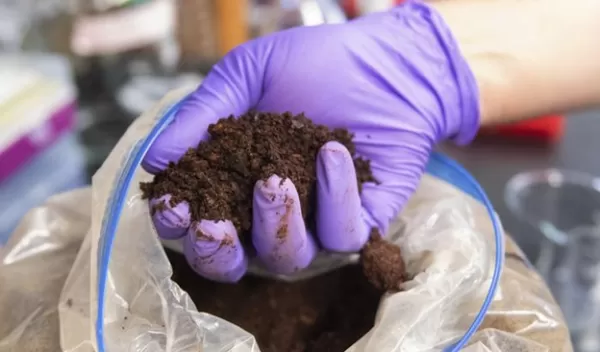
A protein mines and sorts rare earths, paving way for green tech
Rare-earth elements, such as neodymium and dysprosium, are critical components in almost all modern technologies from smartphones to hard drives, but they are notoriously hard to extract from the Earth's crust and to separate from one another.
Penn State scientists have discovered a new mechanism by which bacteria select among rare-earth elements, using the ability of a bacterial protein to bind to another unit of itself, or "dimerize," only when it is bound to certain rare-earth elements.
"Our method, in theory, is applicable to any way in which rare earths are harvested."
By figuring out how this molecular handshake works at the atomic level, the researchers have found a way to separate different rare-earth metals from one another under normal room temperature conditions. This strategy could lead to more efficient, greener mining and recycling practices for the entire tech sector, the scientists state.
"Biology manages to differentiate rare earths from all the other metals out there — and now, we can see how it even differentiates between the rare earths it finds useful and the ones it doesn't," said Joseph Cotruvo Jr., a chemist at Penn State and lead author of a U.S. National Science Foundation-supported paper reporting the discovery in the journal Nature. "We're showing how we can adapt these biological approaches for rare-earth recovery and separation."
Rare-earth elements are in fact relatively abundant, Cotruvo explained, but they are what mineralogists call "dispersed," meaning they're scattered across the planet in low concentrations.
"If you can harvest rare earths from devices we already have, then we may not be so reliant on mining them," Cotruvo said. He added that regardless of the source, however, the challenge of separating one rare earth from another to get a pure substance remains.
"Whether you are mining the metals from rock or from devices, you are still going to need to perform the separation," said Cotruvo. "Our method, in theory, is applicable to any way in which rare earths are harvested."
